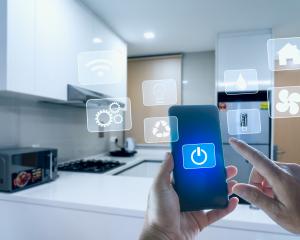Taiwanese cell phone maker HTC Corp. is filing a patent complaint against Apple Inc. over its popular gadgets, escalating a legal dispute as new smart phones are threatening the iPhone's supremacy.
HTC, which makes the Droid Incredible and other phones running competing Android software from Google, has filed a complaint with the US International Trade Commission seeking to block US sales of the iPhone, iPod and iPad devices.
Apple filed its own lawsuits against HTC in March, saying HTC's cell phones violate 20 of Apple's iPhone patents. Apple's complaints were made before the trade commission and in US District Court in Wilmington, Delaware.
None of the complaints is likely to block sales of any products any time soon. Patent disputes are common among technology companies and often take years to resolve. The cases often lead to licensing agreements rather than outright bans on imports, as HTC is seeking in its complaint. Apple's products are typically made overseas.
The wild success of the first iPhone, which launched in 2007, prompted other cell phone makers to rush out touch-screen smart phones of their own in a bid to lure consumers, not just business users attached to their BlackBerry phones.
At the end of 2009, about 14 percent of smart phones sold worldwide were iPhones, according to the research group Gartner Inc. Apple closed the gap with BlackBerry maker Research in Motion Ltd., which had 20 percent of sales.
But Android phones, while accounting for only 4 percent of sales, grew at a faster rate than Apple last year.
In the filing, HTC said Apple violates five patents. In one, the technology helps prolong battery life by letting the phone system operate independently from the gadget's other functions. The phone might be in "sleep" mode while other programs are active.
In another, stored information is moved between different kinds of memory depending on how much juice is left in the battery.
The other three patents relate to how the phones store numbers, then look them up and dial them.
Apple, which is based in Cupertino, California, had no comment on HTC's complaint, other than to point to its own legal actions against the cell phone maker.
Android phones, like the iPhone, support multitouch screens. Users sweep their fingers across the screens, and different "gestures" stand for different commands.
Among the patents singled out by Apple in its case against HTC is one that lets a device's screen detect more than one finger touch at a time - for instance, allowing someone to zoom in or out by spreading their fingers apart or pinching them together. Another patent refers to technology that helps a device react to information about its surroundings gathered by sensors.
HTC signed a patent-licensing agreement with Microsoft in April, presumably to avoid a legal tussle with another of the computer industry's biggest players.
Even though Google's software powers Android phones, hardware makers such as HTC will bear the brunt of the legal actions. Industry experts say that has historically been the case.
They also note that HTC is an easier target than Google for US lawsuits. A direct challenge to Google could devolve into a broader dispute over the open-source software approach that Google espouses.
That approach involves letting a community of programmers freely use and improve the Android software. By contrast, Apple supports a closed system in which it retains legal rights and controls.
Even if a legal decision is a long time coming, Apple's move against HTC could tamp down other mobile phone manufacturers' enthusiasm for Android if it seems hefty legal fees could erase the gains from using free software from Google.



